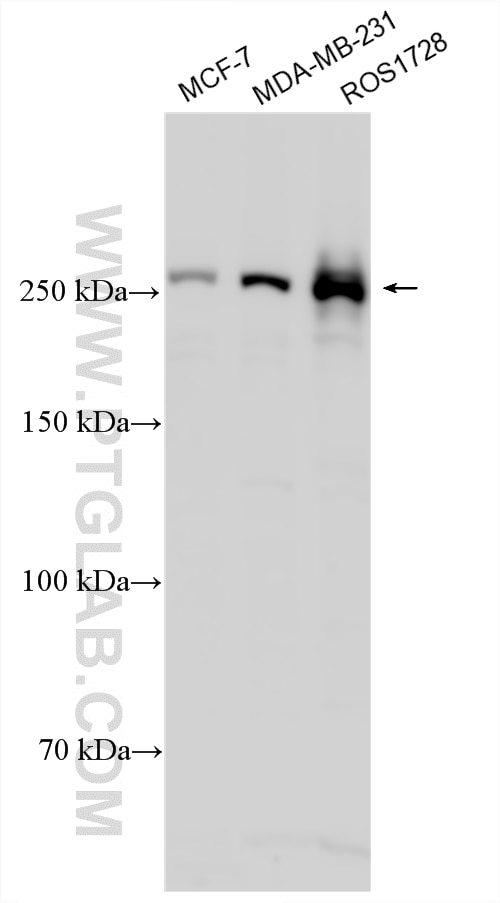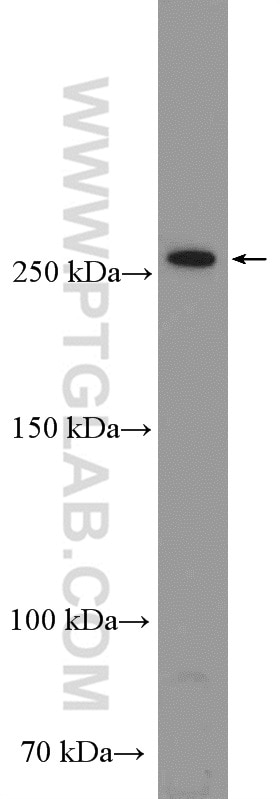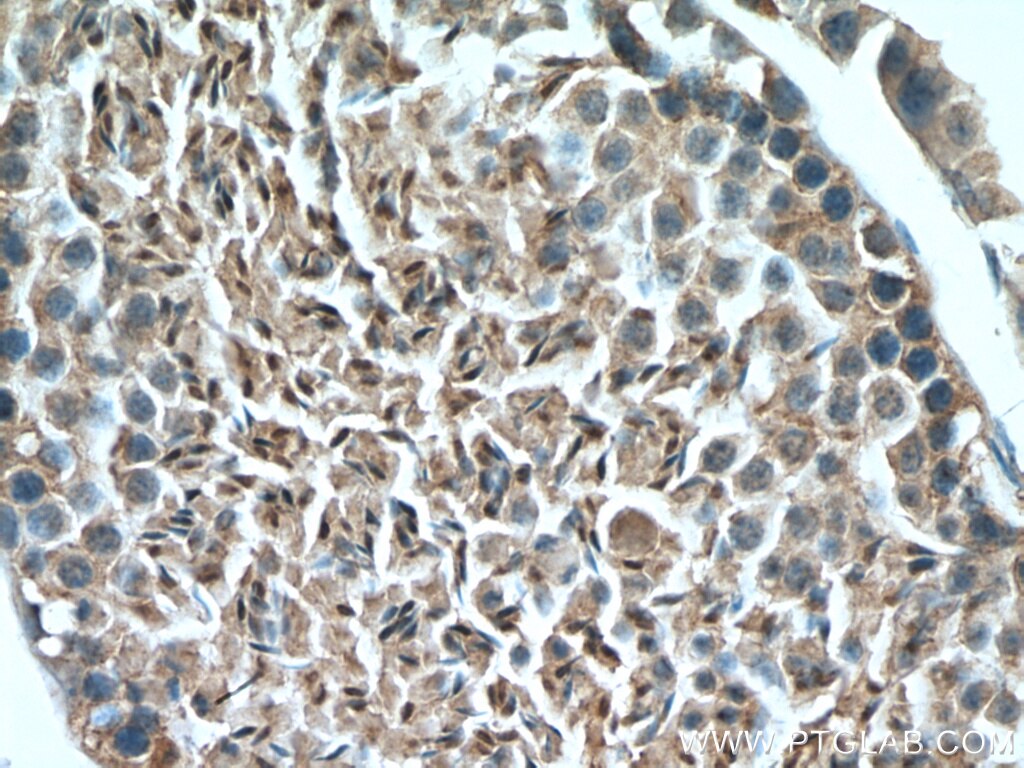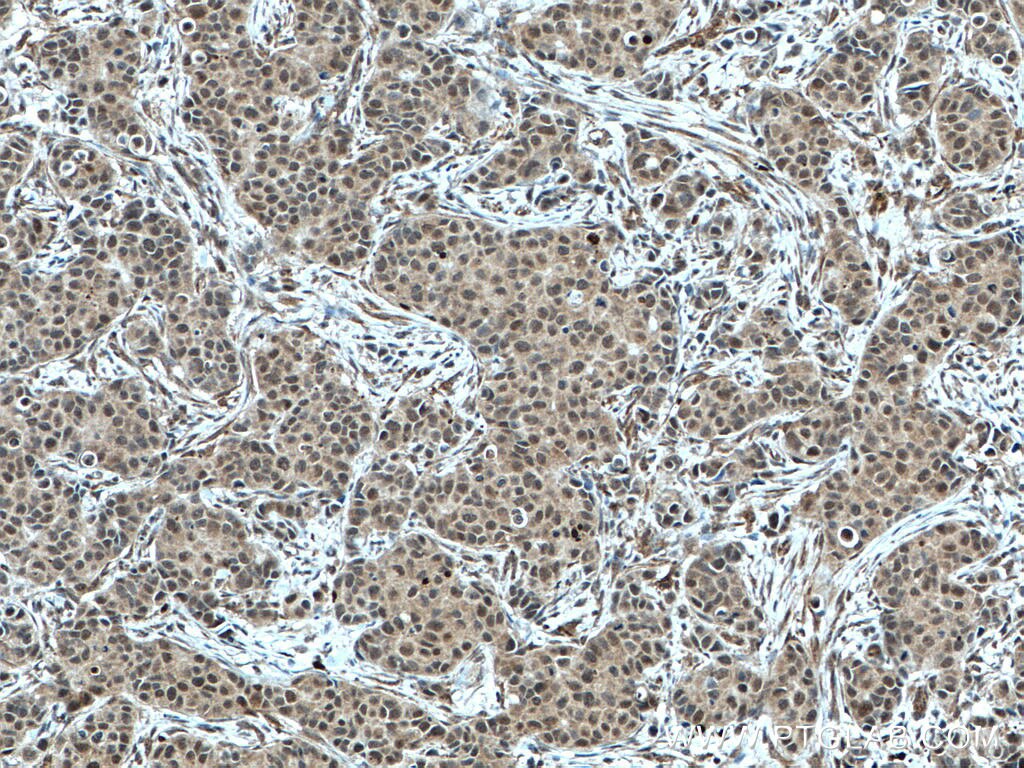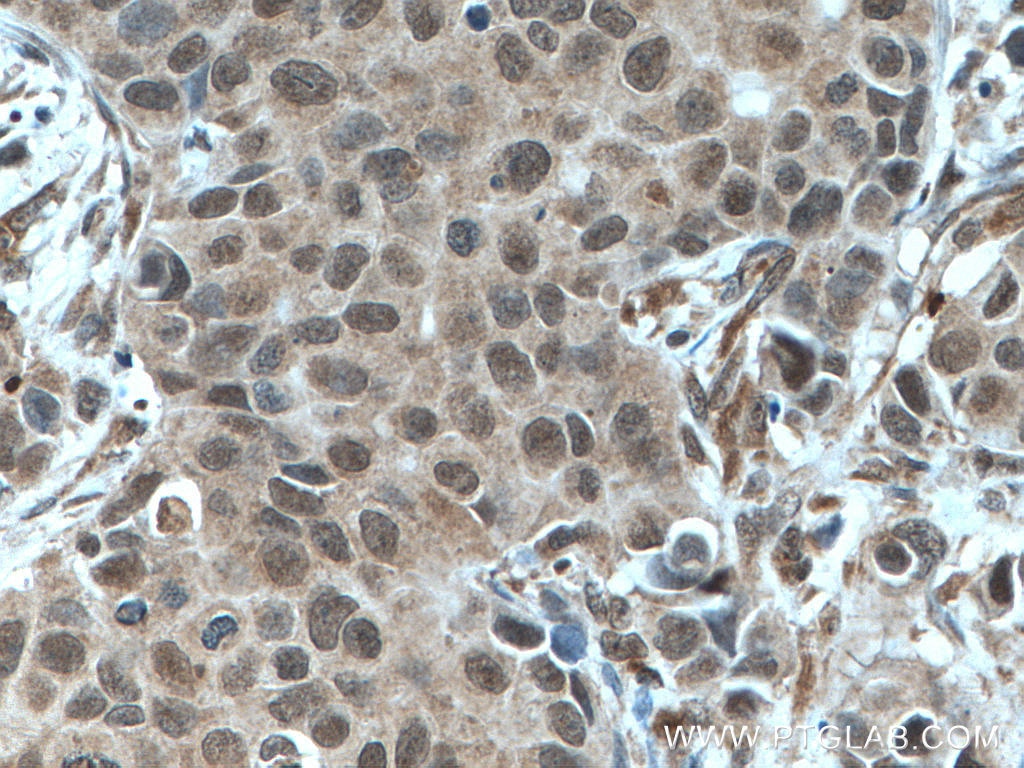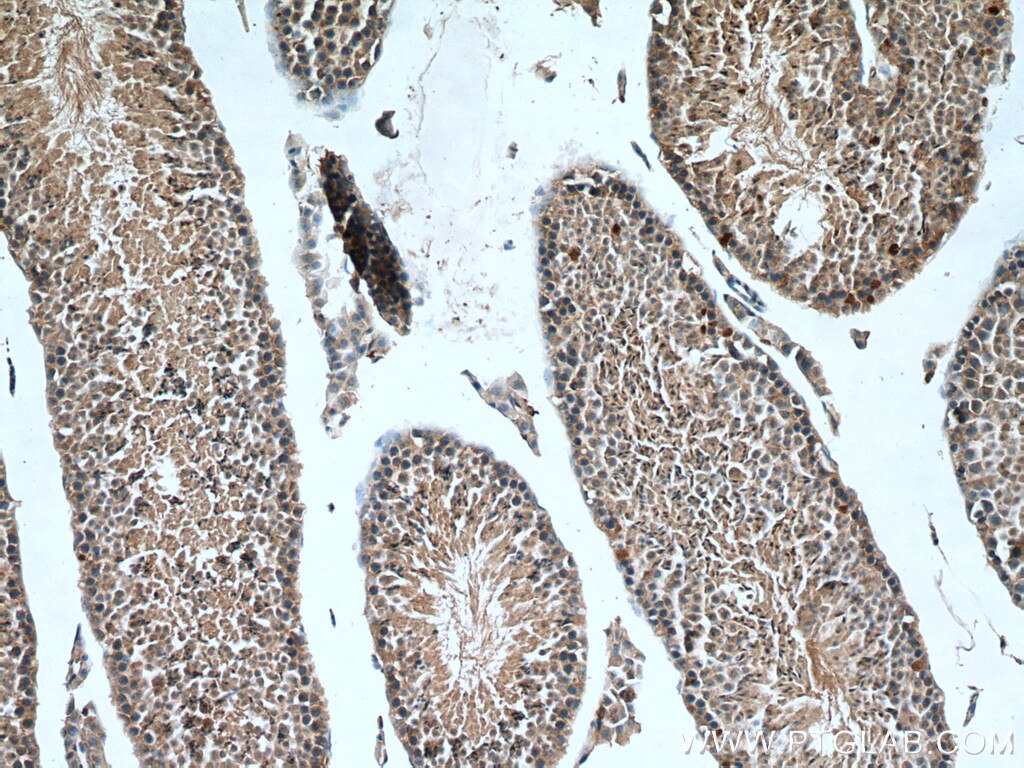Tested Applications
| Positive WB detected in | MCF-7 cells, MDA-MB-453s cells, MDA-MB-231 cells, ROS1728 cells |
| Positive IHC detected in | mouse testis tissue, human breast cancer tissue Note: suggested antigen retrieval with TE buffer pH 9.0; (*) Alternatively, antigen retrieval may be performed with citrate buffer pH 6.0 |
Recommended dilution
| Application | Dilution |
|---|---|
| Western Blot (WB) | WB : 1:500-1:1000 |
| Immunohistochemistry (IHC) | IHC : 1:50-1:500 |
| It is recommended that this reagent should be titrated in each testing system to obtain optimal results. | |
| Sample-dependent, Check data in validation data gallery. | |
Published Applications
| KD/KO | See 1 publications below |
| WB | See 194 publications below |
| IHC | See 8 publications below |
| IF | See 9 publications below |
Product Information
20657-1-AP targets mTOR in WB, IHC, IF, ELISA applications and shows reactivity with human, mouse, rat samples.
| Tested Reactivity | human, mouse, rat |
| Cited Reactivity | human, mouse, rat, pig, canine, chicken, bovine, hamster, fish |
| Host / Isotype | Rabbit / IgG |
| Class | Polyclonal |
| Type | Antibody |
| Immunogen |
Peptide Predict reactive species |
| Full Name | FK506 binding protein 12-rapamycin associated protein 1 |
| Calculated Molecular Weight | 289 kDa |
| Observed Molecular Weight | |
| GenBank Accession Number | NM_004958 |
| Gene Symbol | mTOR |
| Gene ID (NCBI) | 2475 |
| RRID | AB_10734440 |
| Conjugate | Unconjugated |
| Form | Liquid |
| Purification Method | Antigen affinity purification |
| UNIPROT ID | P42345 |
| Storage Buffer | PBS with 0.02% sodium azide and 50% glycerol, pH 7.3. |
| Storage Conditions | Store at -20°C. Stable for one year after shipment. Aliquoting is unnecessary for -20oC storage. 20ul sizes contain 0.1% BSA. |
Background Information
MTOR, also named as FRAP1, FRAP, FRAP2 and RAPT1, belongs to the PI3/PI4-kinase family. MTOR is a Ser/Thr protein kinase that functions as an ATP and amino acid sensor to balance nutrient availability and cell growth. MTOR is Kinase subunit of both mTORC1 and mTORC2, which regulate cell growth and survival in response to nutrient and hormonal signals. mTORC1 is activated in response to growth factors or amino-acids. mTORC2 is also activated by growth factors, but seems to be nutrient-insensitive. mTORC2 seems to function upstream of Rho GTPases to regulate the actin cytoskeleton, probably by activating one or more Rho-type guanine nucleotide exchange factors. mTORC2 promotes the serum-induced formation of stress-fibers or F-actin. MTOR has a calculated molecular mass of 289 kDa, and always can be detected at about 250 kDa due to some modifications (PMID: 14578359). The antibody is specific to MTOR.
Protocols
| Product Specific Protocols | |
|---|---|
| IHC protocol for mTOR antibody 20657-1-AP | Download protocol |
| Standard Protocols | |
|---|---|
| Click here to view our Standard Protocols |
Publications
| Species | Application | Title |
|---|---|---|
J Exp Med Nuclear DEK preserves hematopoietic stem cells potential via NCoR1/HDAC3-Akt1/2-mTOR axis. | ||
Cell Death Differ PIWIL2 interacting with IKK to regulate autophagy and apoptosis in esophageal squamous cell carcinoma. | ||
Int J Biol Macromol Novel soybean polypeptide dglycin alleviates atherosclerosis in apolipoprotein E-deficient mice |

